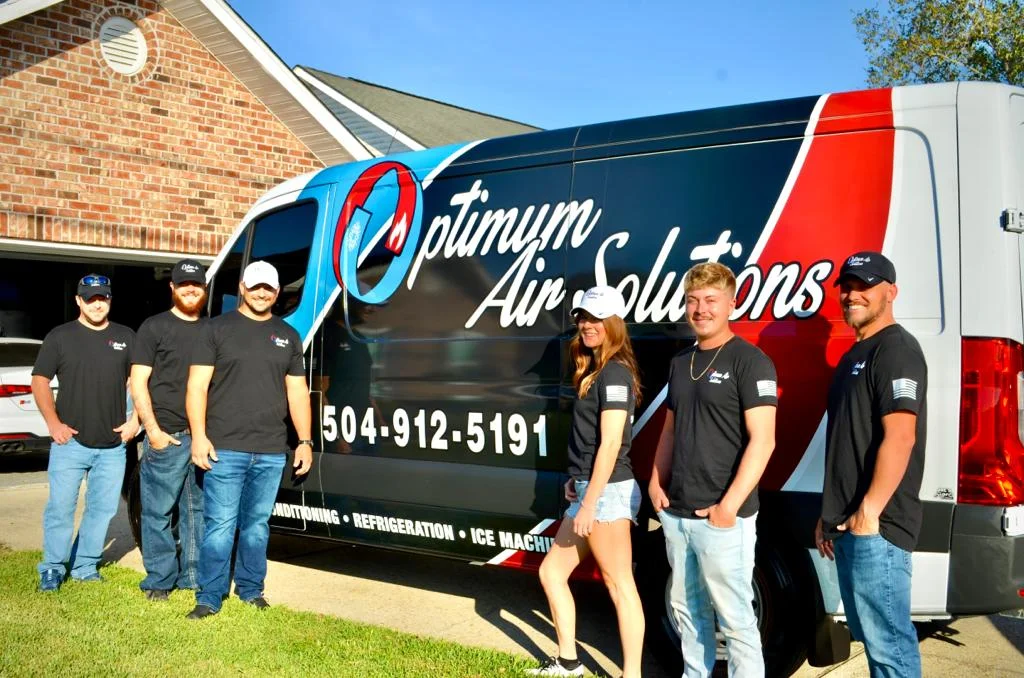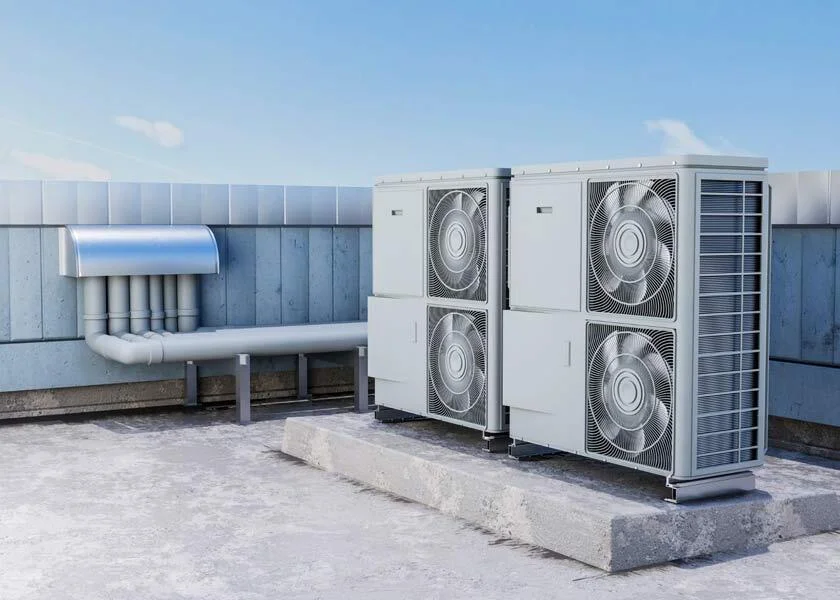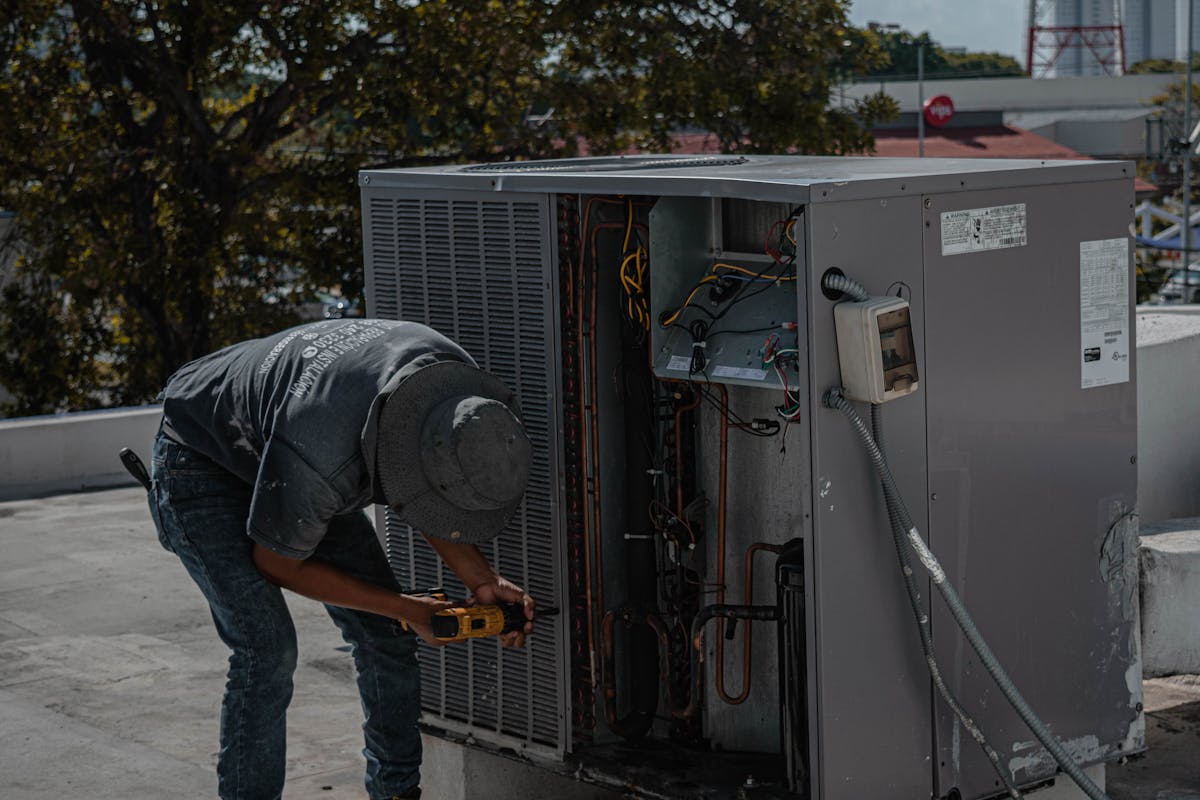As the weather continues to warm, having a functional air conditioner (AC) is becoming steadily more important. And in order for your AC to perform at its best during summer heat waves, you need two things: regular AC maintenance and a qualified residential AC technician to provide it. These services typically include inspections, cleanings and tune-ups, ensuring that your AC can keep your home cool and comfortable no matter the season. The best technicians—like Optimum Air Solutions—can complete these maintenance checks quickly and precisely, catching minor concerns before they can worsen. But work with an unqualified AC technician, and you may end up dealing with issues such as low-quality work, safety risks and financial concerns.
What to Look For in a Residential AC Technician
For the most part, the process of choosing a residential AC technician is a subjective one. The services you’re looking for, your budget and the urgency of your AC-related needs all affect what companies you can and want to work with. But there are also some general qualities you should prioritize, including:
-
Insurance coverage
Insurance coverage, including general liability and worker’s compensation, keeps both customers and technicians safe during the completion of projects. In case of accidents, injury or property damage, both workers and property owners are protected from the potential financial fallout.
-
Location
Is your technician in your area? While this is not a requirement, it may speed up response time, as well as ensure that your technician is familiar with your area’s climate. As such, they may be able to better determine your property’s needs, as well as the best AC systems to install.
-
Experience and continued education
Talk to prospective residential AC service providers in order to determine how long they have been in business and what brands and systems they specialize in. A company which is too young or which does not have a successful track record may not be able to offer everything you’re looking for. Additionally, discuss whether or not companies offer continued education to their technicians. This allows workers to stay up-to-date on advancements in AC models, as well as best practices for AC repair and installation.
-
Reviews and recommendations
Before choosing a residential AC service provider, always look for reviews from past customers. This will give you a sense of work speed and precision, as well as how customers rated their experiences. Additionally, whenever possible, ask for recommendations from coworkers, friends or family members. This may allow you to gain a more complete understanding of a technician’s process, as well as potential costs, project timelines and response speeds.
-
Communication and personalization
Look for technicians who are willing to provide updates, professional guidance and answers to your questions, as well as take what you’re looking for into account. The best companies will hit all of these marks—without straining themselves too thin, of course.
The Importance of AC Technician Licensing and Certification
-
Licensing
Licensing requirements for contractors vary by state. In general, however, these accreditations indicate that companies have met qualifications including educational, training and/or safety standard demands. In Louisiana, air conditioning, ventilation and insulation work falls under the “Mechanical” licensing classification, and a license is required for any commercial projects whose cost will exceed $10,000. Among the requirements for acquiring this license are the designation of a qualifying party—someone who represents the company—and the completion of an in-depth trade examination. Other requirements, including providing certificates of insurance and meeting continuing education standards, are applicable only for residential technicians, not commercial ones.
-
Certification
Certifications allow technicians to further improve their skills, and are typically offered by organizations. Common heating, ventilation and air conditioning (HVAC) certifications include:
- Environmental Protection Agency (EPA) Section 608 Technician Certification. Required for all HVAC technicians who handle refrigerants, this certification demands the passing of an examination specific to the equipment the technician in question will be working on. Once gained, this certification does not expire.
- North American Technician Excellence (NATE). These certifications allow technicians to display their real-world knowledge of heating, ventilation, air conditioning and refrigeration (HVAC-R). Technicians hoping to gain these accreditations have two pathways with which to do so:
- Traditional: Applicants will need to complete a core examination as well as a specialty examination, which may cover topics such as safety, basic construction or basic electrical.
- Certified HVAC Professional (CHP-5): Applicants must complete five required examinations covering topics including HVAC fundamentals and installation.
Once technicians earn their certification, it must be renewed every two years.
Risks of Working with an Unqualified Home Air Conditioning Service
For homeowners trying to maintain or install cooling systems on a budget, unlicensed contractors may seem like the way to go. However, the savings you gain may end up being lost to potential future issues including:
- Poor craftsmanship. Without the proper experience or the willingness to do a thorough job, unqualified technicians may make mistakes during the maintenance, repair or replacement of your AC system. This may lead to decreased energy efficiency, premature repair needs and even safety risks.
- Lack of insurance. If a worker gets injured on the job and the company doesn’t have worker’s compensation, you may be held liable. Additionally, you will likely have to cover any property damage incurred during the project out of pocket.
- Legal concerns. Failing to file any necessary permits, as well as adhere to applicable codes and regulations, may result in fines or other penalties.
- Loss of home value. An AC system which was not properly installed, or which is not compliant with local codes and regulations, may turn off buyers. This may, in turn, decrease the value of your property and make it harder to sell your home.
- Voided warranty. If your equipment warranty states that any work must be completed by a licensed technician, failing to meet this stipulation may result in the loss of your warranty coverage. As such, you will be left responsible for the full cost of any repairs or replacements.
Improve Your AC System’s Lifespan and Efficiency with Optimum Air Solutions
For homeowners, choosing the right residential AC service is about more than just affordability and flexibility. It is also about finding a home air conditioning service provider who is communicative, experienced and, most importantly, qualified. Thankfully, Optimum Air Solutions meets all of the above and then some. Our team is highly committed to providing customers with the best service possible by ensuring that each AC project is completed promptly and precisely. Additionally, with over 20 years of experience in the HVAC industry and a regularly trained team, we can work on most any make and model of heating or cooling system, making us a one-stop-shop for your residential HVAC repair needs. So if you are looking for a high-quality residential AC service to complete a repair or installation, give us a call or send us a message today.
continue reading
Related Posts
There’s a simple truth when it comes to your HVAC
“Efficiency isn’t just about comfort. It’s about cost and resale.”
“An ounce of prevention is worth a pound of cure.”






